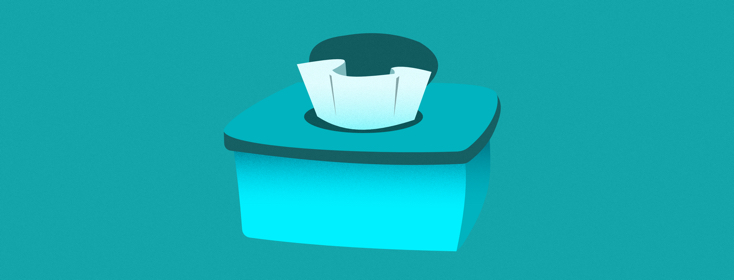9 Life Hacks for Living With a Fistula
Around 2 years ago I experienced one of the worst periods of my life: I had a fistula. If you haven't heard of them, then you're incredibly lucky.
How common are fistulas?
They're thought to affect a third of Crohn's patients and are defined by an abnormal passageway that connects one internal organ to another or to the outside surface of the body.1
In my case, my fistula was in my perianal area, but patients can suffer from fistulas that involve the bowel, bladder, and even the vagina!
After 2 operations (an abscess drainage and a fistulotomy), I feel incredibly fortunate that for the moment, at least, this no longer significantly impacts on my life. However, once I started chatting about this recently, I became aware of just how many people are living with this issue, and how little we're talking about it.
So, I reached out to the IBD community (in particular, those living with fistulas and abscesses in the Abscess/Fistula Support Group for Women that I'm a part of) and asked them to share their top tips for managing life, day in day out, with the uncomfortable nature of this condition. I really hope you find these tips useful...
Tips for managing a fistula
Use non-woven swabs for catching additional discharge
They are soft, absorbent, and disposable.
Cavilon spray
This can help if you suffer from the skin around the fistula breaking down. It creates a barrier to protect it and it's no longer as painful.
Sitz baths
Getting one of these is always handy (a device that attaches to your toilet seat and allows you to soak your buttocks with hot water). They can be amazing for pain relief and used multiple times a day (after each bowel movement especially). You can also buy a portable bidet (around $10 on Amazon) so it's easy to travel with you and much easier than soaking yourself in the shower every time.
Find a good non-scented brand of sanitary towel
Look for a towel that doesn't irritate you. Longer sanitary pads can also help with drainage overnight.
Always have baby wipes
Keep these in your handbag for emergencies. Make sure these are alcohol and perfume-free to avoid any irritation.
Choose toilet paper carefully
Use toilet paper that isn't fluffy and fibrous, nor bleached or colored.
Digitate the wound sites
This involves running a finger over the top of it to avoid the top layer healing too quickly so that they don't get over-granulated, and you can let them heal slowly but well.
Make sure you have a strategy if constipated
Constipation can make things worse as if a bowel movement is difficult to pass, it can put pressure on the fistula wound. A doctor can prescribe a Colace stool softener to use with narcotic pain meds. Fiber supplements can also be helpful.
Clean every time after you go to the toilet
Use a shower head or sitz bath each time you go to the toilet to keep everything clean. Use baby wipes or a bottled water spray if out and about.
Of course, it's always best to check with your personal physician, but I hope these tips are helpful. Do let me know if you have any more to add below!

Join the conversation